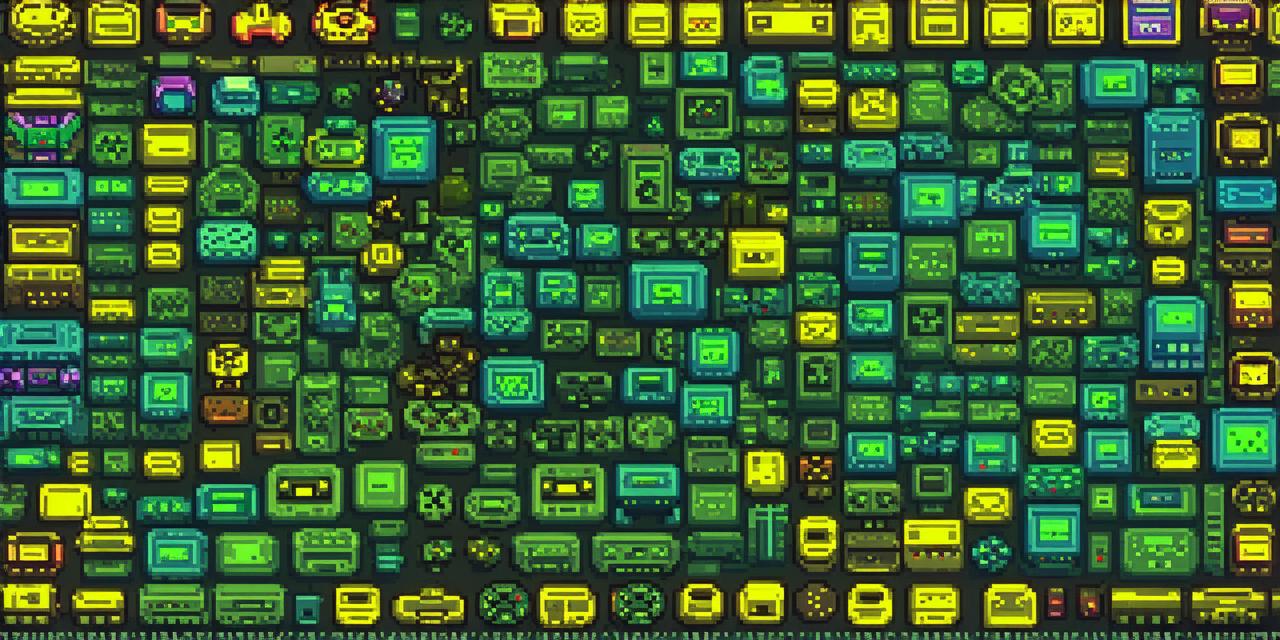As a game developer, you understand the importance of creating engaging and immersive video games that keep players coming back for more. With so many different approaches to game development, it can be hard to know which one is right for your project. In this article, we’ll explore some of the most popular and effective video game development techniques, as well as the case studies and personal experiences that have made them successful.
1. Unity 3D: The Most Popular Game Engine
Unity 3D is by far the most popular game engine on the market, with over half of all mobile games built using it. This versatile engine offers a range of features, including 2D and 3D graphics, animation tools, physics engines, and scripting support for C and JavaScript. Unity’s popularity can be attributed to its ease of use, scalability, and wide range of community resources and assets.
One great example of Unity in action is the popular puzzle game Two Dots, which was developed by DoodleMooch Games using Unity. The game quickly gained a huge following on social media platforms like Facebook and Instagram, with millions of users playing every day.
1. Unreal Engine: The Powerhouse of Game Development
Unreal Engine is another popular game engine that has been used to create some of the most visually stunning games of all time. This powerful engine offers a range of features, including real-time rendering, physics engines, and support for advanced graphics effects like ray tracing and global illumination. Unreal Engine’s popularity can be attributed to its ability to deliver high-quality games that run smoothly on a wide range of devices, from smartphones to high-end PCs.
One great example of Unreal Engine in action is the popular open-world adventure game Fortnite, which was developed by Epic Games using Unreal Engine. The game quickly gained a huge following among gamers of all ages, with millions of players logging on every day to battle it out in the game’s unique, cartoonish world.
1. Godot: The Future of Game Development
Godot is a newer game engine that has been gaining popularity among game developers for its ease of use and advanced features. This open-source engine offers a range of tools for game development, including 2D and 3D graphics, animation tools, physics engines, and scripting support for C, JavaScript, and Python. Godot’s popularity can be attributed to its ability to deliver high-quality games with less code than traditional game engines like Unity and Unreal Engine.
One great example of Godot in action is the popular 2D platformer game Celeste, which was developed by Matt Moody using Godot. The game quickly gained a huge following on Steam and other gaming platforms, with its challenging levels and beautiful pixel art graphics.
1. PlayMaker: The Best Tool for Prototyping Games
PlayMaker is a tool for prototyping games that was developed by Unity Technologies. This powerful tool allows game developers to quickly create and test game mechanics and ideas without having to write any code. PlayMaker includes a range of pre-built assets and tools, as well as support for custom scripts and plugins.

One great example of PlayMaker in action is the popular mobile game Angry Birds, which was developed using Unity and PlayMaker by Rovio Mobile. The game quickly gained a huge following on social media platforms like Facebook and Instagram, with its unique, physics-based gameplay and colorful graphics.
1. Agile Game Development: The Future of Project Management
Agile game development is an iterative approach to project management that has become increasingly popular in the gaming industry. This methodology involves breaking down a game into small, manageable pieces, with regular check-ins and feedback from stakeholders and users. Agile game development allows game developers to quickly adapt to changing requirements and priorities, resulting in more efficient and effective game development processes.
One great example of agile game development is the popular mobile game Pokémon Go, which was developed using Unity by Niantic.
